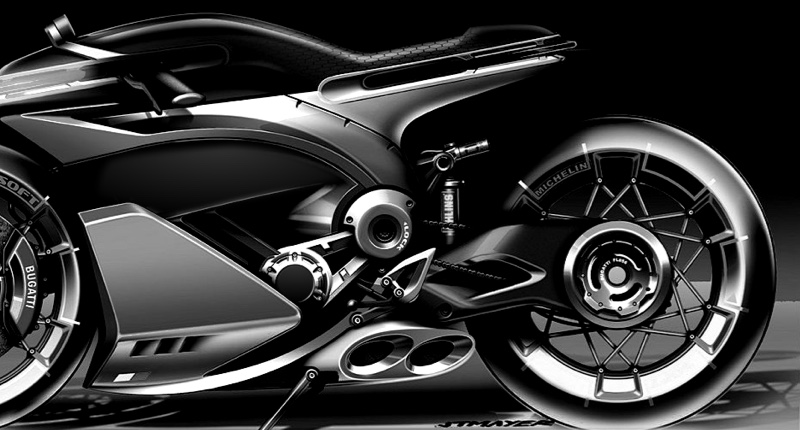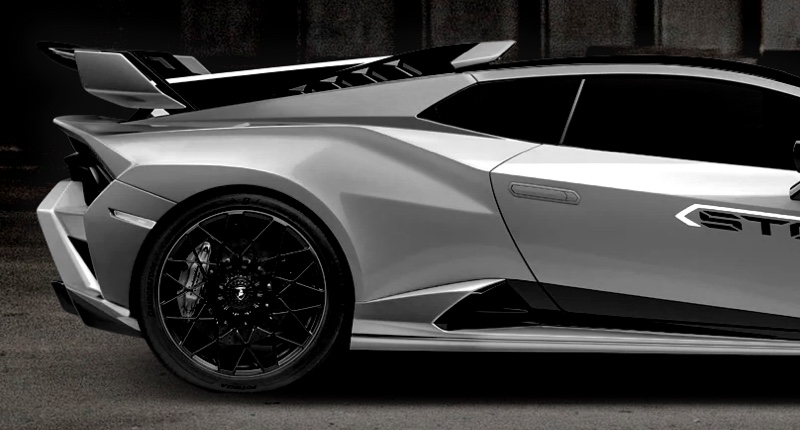What is so special about carbon fiber? | Supreem Carbon Expert Guide
- What is So Special About Carbon Fiber? A Deep Dive for B2B Procurement
- What Gives Carbon Fiber Its Unparalleled Strength-to-Weight Ratio?
- How Is Carbon Fiber Manufactured, and Why Does This Process Impact Performance?
- What Are the Primary Applications of Carbon Fiber in Various Industries?
- What Are the Cost Considerations and Long-Term Benefits of Investing in Carbon Fiber Parts?
- What Factors Should Be Considered When Selecting a Carbon Fiber Parts Supplier?
- Supreem Carbon: Your Partner for Advanced Composite Solutions
What is So Special About Carbon Fiber? A Deep Dive for B2B Procurement
In the world of advanced materials, carbon fiber has carved out a unique and indispensable niche. Its remarkable properties have revolutionized industries ranging from aerospace to automotive, and for B2B procurement specialists, understanding its 'specialness' is crucial for making informed decisions. This blog post explores the core advantages, manufacturing intricacies, applications, cost considerations, and supplier selection criteria for carbon fiber parts, equipping you with the professional knowledge needed for your next purchase.
What Gives Carbon Fiber Its Unparalleled Strength-to-Weight Ratio?
The true magic of carbon fiber lies in its extraordinary strength-to-weight ratio. Composed of extremely thin strands of carbon atoms, typically 5-10 micrometers in diameter, these fibers are woven together and embedded in a resin matrix to form carbon fiber reinforced polymer (CFRP) composites. While steel has a density of approximately 7.85 g/cm³ and aluminum around 2.7 g/cm³, carbon fiber composites typically boast densities ranging from 1.5 to 1.9 g/cm³. Yet, their tensile strength can reach up to 7,000 MPa (compared to high-strength steel at ~2,000 MPa for certain grades), and modulus of elasticity can be as high as 700 GPa. This combination means you get superior strength and stiffness with significantly less weight, leading to improved performance, fuel efficiency, and reduced inertia in dynamic applications.
How Is Carbon Fiber Manufactured, and Why Does This Process Impact Performance?
The sophisticated manufacturing process is key to carbon fiber's properties. It primarily involves heating a precursor material, most commonly polyacrylonitrile (PAN), in an oxygen-free environment to extremely high temperatures (up to 3000°C in some stages). This process, called carbonization, expels non-carbon atoms, leaving behind long, tightly interlocked chains of carbon atoms. The precise control over temperature and tension during these stages dictates the final fiber's mechanical properties, such as tensile strength and stiffness. Deviations in the process can lead to voids, impurities, or inconsistent fiber alignment, all of which directly impact the composite's structural integrity, fatigue resistance, and overall performance. Therefore, a supplier's manufacturing expertise and stringent quality control are paramount.
What Are the Primary Applications of Carbon Fiber in Various Industries?
Carbon fiber's versatility has led to its widespread adoption across numerous high-performance industries:
- Aerospace: Critical for weight reduction and increased fuel efficiency in aircraft. For example, the Boeing 787 Dreamliner and Airbus A350 are composed of over 50% composite materials by weight, predominantly carbon fiber, significantly reducing fuel consumption.
- Automotive: Used in high-performance vehicles (Formula 1 cars, supercars) for chassis, body panels, and structural components to enhance rigidity, reduce weight, and improve safety. Increasingly finding its way into electric vehicles to offset battery weight and extend range.
- Wind Energy: Essential for manufacturing larger, lighter, and more efficient wind turbine blades, which can exceed 100 meters in length and require exceptional stiffness and fatigue resistance for optimal energy capture.
- Sporting Goods: Found in bicycles, tennis rackets, golf clubs, and fishing rods, where lightweight strength and vibration dampening are critical for performance and user comfort.
- Medical: Used in X-ray tables, surgical instruments, and prosthetics due to its radiolucency (transparency to X-rays) and high strength-to-weight ratio.
What Are the Cost Considerations and Long-Term Benefits of Investing in Carbon Fiber Parts?
While the initial cost of carbon fiber parts is typically higher than traditional materials like steel or aluminum (often 5-10 times more per pound depending on the application and complexity), the long-term benefits frequently outweigh this High Quality, especially in high-performance or critical applications. Key considerations include:
- Reduced Operating Costs: In aerospace and automotive, lighter components lead to significant fuel savings over the product's lifespan, contributing to a lower total cost of ownership.
- Extended Lifespan & Reduced Maintenance: Carbon fiber exhibits excellent fatigue resistance and corrosion immunity, leading to longer component lifecycles and lower maintenance requirements compared to metals that can corrode or fatigue over time. This translates to reduced downtime and operational expenses.
- Enhanced Performance: Superior stiffness, strength, and vibration damping can lead to better product performance, enabling new designs and functionalities previously impossible with traditional materials, thus creating competitive advantages.
- Design Freedom: Composites offer greater design flexibility, allowing for complex geometries and parts integration (e.g., consolidating multiple metal parts into one composite part), potentially reducing assembly costs and component count.
A comprehensive lifecycle cost analysis is crucial for procurement, often revealing a strong return on investment when considering performance, durability, and operational savings.
What Factors Should Be Considered When Selecting a Carbon Fiber Parts Supplier?
Choosing the right supplier is paramount for successful carbon fiber procurement. Consider these critical factors:
- Technical Expertise & Engineering Support: A strong supplier offers design consultation, material selection guidance, and FEA (Finite Element Analysis) capabilities to optimize your part's performance and manufacturability, reducing development time and costs.
- Manufacturing Capabilities & Quality Control: Look for advanced manufacturing techniques (e.g., autoclave curing, RTM, filament winding), robust quality management systems (e.g., ISO 9001, AS9100 for aerospace, IATF 16949 for automotive), and rigorous testing protocols (e.g., ultrasonic inspection, mechanical testing, NDT).
- Material Sourcing & Traceability: Ensure transparency in their material supply chain, using high-quality resins and fibers from reputable manufacturers. Full traceability of raw materials and production batches is vital for accountability and quality assurance, especially in critical applications.
- Scalability & Lead Times: Can they meet your current and future production volume needs? What are their typical lead times for prototyping and mass production, and how do they manage potential supply chain disruptions?
- Cost-Effectiveness & Value Proposition: While not the cheapest, the best supplier offers a competitive price point balanced with exceptional quality, reliability, technical support, and long-term partnership value.
- Reputation & References: Check their track record, client testimonials, and industry standing. A reputable supplier will have a history of successful projects and satisfied customers.
Supreem Carbon: Your Partner for Advanced Composite Solutions
When seeking unparalleled quality and expertise in carbon fiber parts, Supreem Carbon stands out as a premier choice. We leverage cutting-edge manufacturing processes, including advanced autoclave curing and precision CNC machining, to produce parts with superior strength, stiffness, and dimensional accuracy. Our commitment to ISO 9001 and AS9100 quality standards ensures rigorous testing and traceability for every component, guaranteeing reliability for your most demanding applications. With a dedicated team of composite engineers, Supreem Carbon offers comprehensive design-to-production support, assisting you from initial concept development through to optimized manufacturing. We pride ourselves on transparent material sourcing, reliable lead times, and a proven track record of delivering high-performance, cost-effective solutions for diverse industrial applications. Partner with Supreem Carbon to unlock the full potential of advanced composites for your next project.

New arrivals of Honda CBR1000RR-R!

Lamborghini Urus engine compartment carbon fiber kit released by Supreem Carbon.

Best 10 car carbon fiber customization suppliers brands in Asia

100% Carbon fiber dash panel and window door trims set for NSX

Supreem carbon Auto part new arrivals!

The 5 Questions You've Always Had About Carbon Fiber
For Facotry
Can I visit your company?
Of course, we are in QiaoTou Town, Dongguan City, Guangdong Province, China.
How many monthly production capacity of the factory?
The average monthly production capacity reach 3000 pieces. With the equipment upgrade, it will be increased over 4000 pieces per month.
For Products
Are you parts have UV protected?
Absolutely! We use multiple layers of premium quality automotive clear (or matt) coats on our products, which ensure that they will remain super pretty for years to come.
For Carbon Fiber Material
What are the advantages of carbon fiber?
High Strength-to-Weight Ratio
It is stronger than many traditional materials, such as steel and aluminum.This high strength-to-weight ratio allows for the creation of lightweight components that maintain structural integrity and durability.
Lightweight
One of the most significant advantages of carbon fiber is its low density, contributing to lightweight structures. This property is particularly crucial in industries where weight reduction is a priority, such as aerospace, automotive, and sports equipment.
Resistant to corrosion and chemicals
Carbon fiber is inherently resistant to corrosion, making it an ideal material for applications exposed to harsh environments or corrosive substances. This property contributes to the longevity of components and reduces maintenance requirements. Carbon fiber has good chemical resistance, making it suitable for use in environments where exposure to chemicals or harsh solvents is a concern. This resistance enhances the material's durability in various industrial settings.
Tolerant of high temperature
Carbon fiber exhibits excellent thermal stability and resistance to high temperatures. This makes it suitable for applications where components are exposed to elevated temperatures, such as in the aerospace and automotive industries.
Low thermal expansion
Carbon fiber has a low coefficient of thermal expansion, meaning it expands or contracts minimally with changes in temperature. This property contributes to dimensional stability, making carbon fiber components reliable in varying temperature conditions.
Aesthetic Appeal
Carbon fiber has a modern and high-tech appearance, contributing to its aesthetic appeal. This property is leveraged in consumer goods, automotive components, and sporting equipment where visual appeal is important.
For Customized Service
How long does the customized products order take?
This depends on the complexity and mold production cycle of the product. The first sample will be ready in 2-3 weeks after mold finished.

Custom Carbon Fiber Drone
Carbon fiber offers several advantages when used in drones (unmanned aerial vehicles, UAVs) due to its unique properties.

Lamborghini Urus Carbon Fiber Engine Bay Panel
Enhance the visual appearance of your Urus engine bay with these custom carbon fiber engine covers. 100% handmade and a 1:1 copy of the original part, which retains all OEM screw mounting points. Elevate your driving experience with this exquisite addition, showcasing unparalleled craftsmanship and enhancing the allure of your Urus’s engine bay.

Honda CBR1000RR-R Carbon Fiber Tank Side Panels

BMW S1000RR S1000R Carbon Fiber Front Fender
The Supreem Carbon Front Fender for BMW S1000RR and S1000R is engineered for durability, precision fitment, and high-performance applications. Manufactured using premium-grade carbon fiber, this fender provides exceptional rigidity, reduced weight, and enhanced aerodynamics—making it suitable for performance upgrades, aftermarket tuning, and professional customization projects.
Let’s Bring Your Carbon Fiber Ideas to Life
Have a question or inquiry about our carbon fiber composite products? Leave us a message here, and our team will get back to you promptly.
Whether you're interested in custom orders, technical specifications, or partnership opportunities, we're here to assist you.
Please fill out the fields above with your name, email address, and message.
© 2024 Supreem Carbon All Rights Reserved.





Facebook
Pinterest
LinkedIn
Instagram